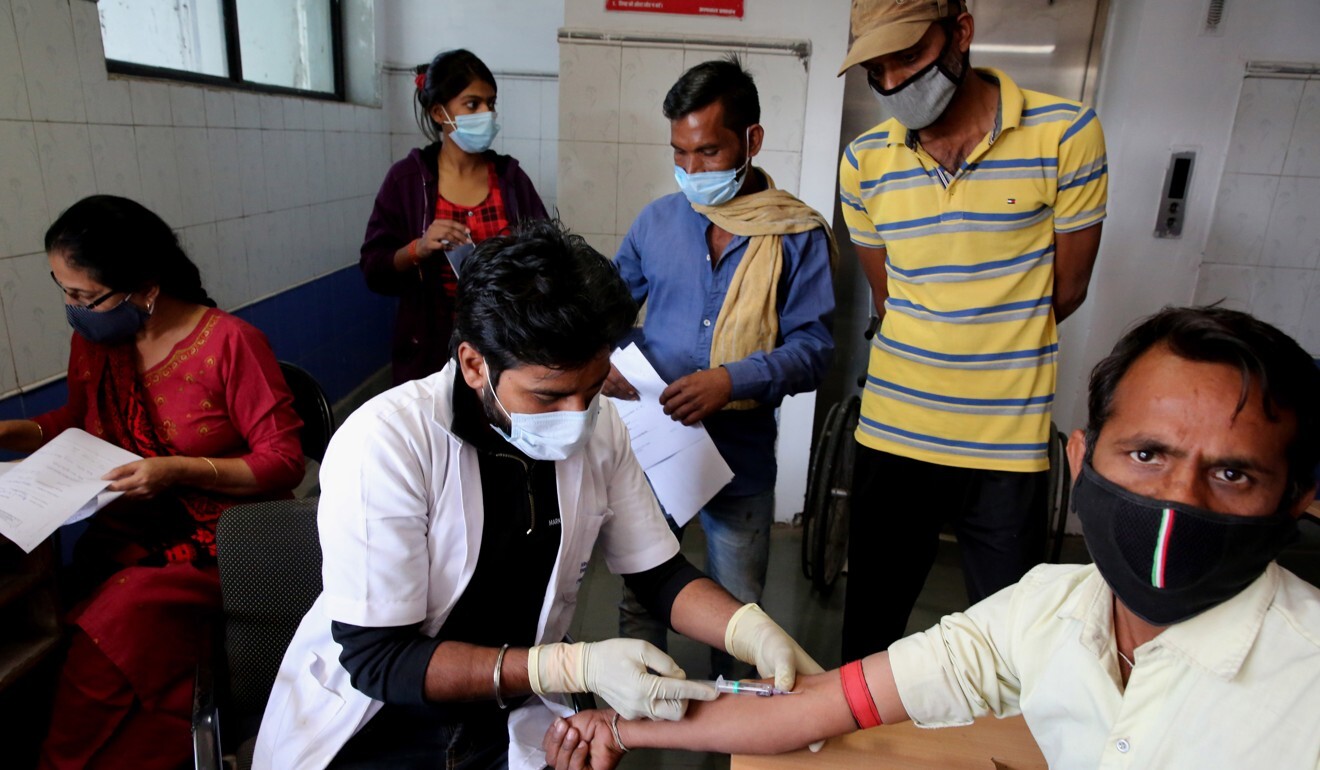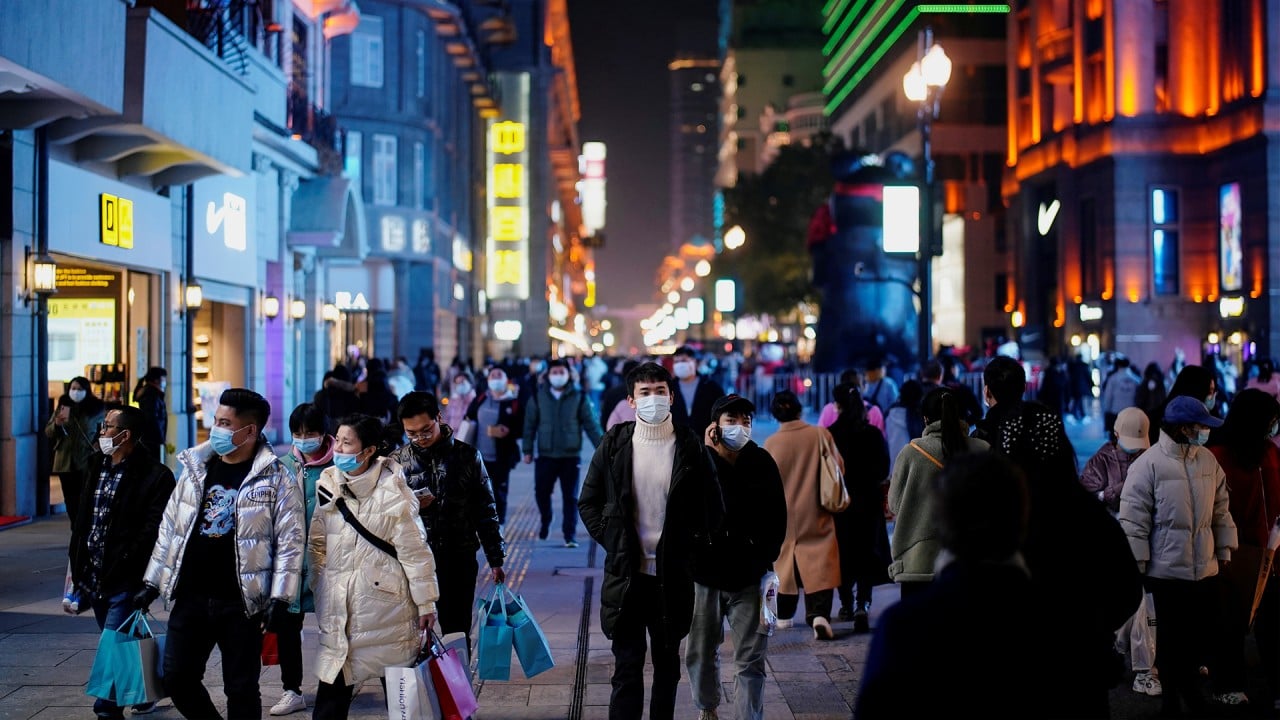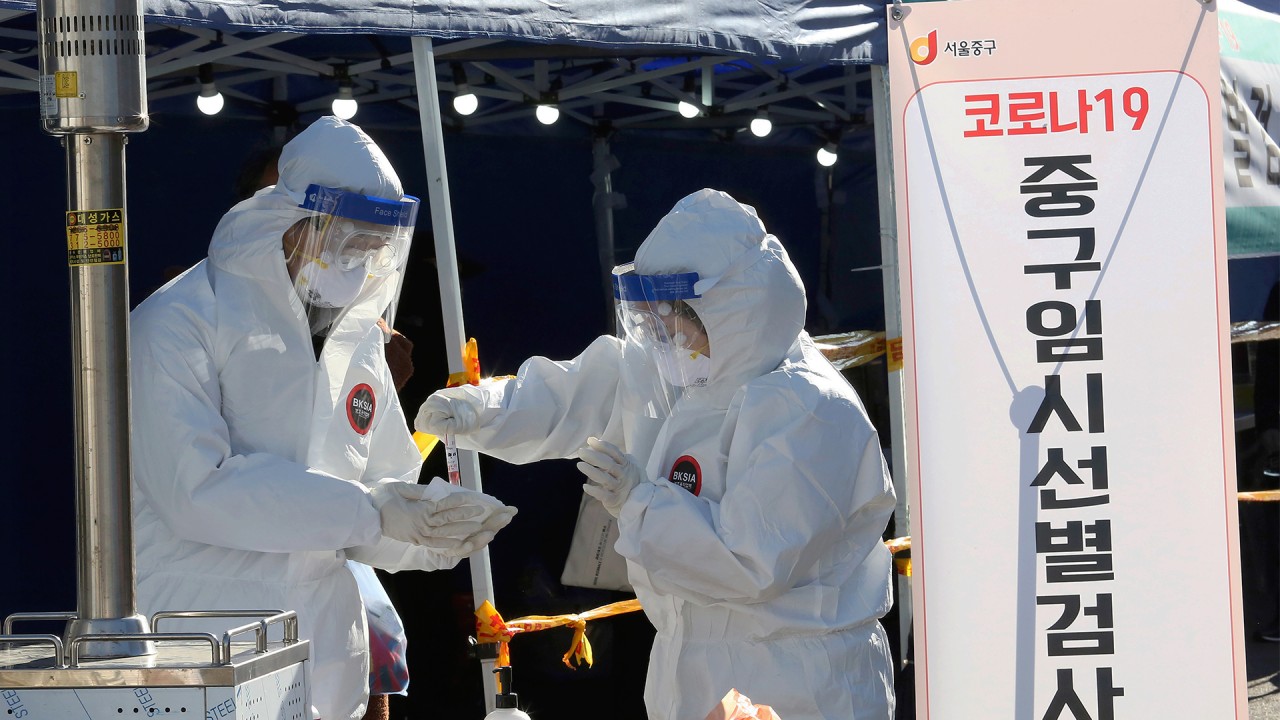
Coronavirus vaccine race: how many doses have Asia-Pacific countries ordered?
- India is the runaway leader in number of doses secured, at 1.6 billion, while Vietnam has yet to announce any official deals
- Among the countries planning to produce home-grown vaccines are Japan, Vietnam and Thailand
INDIA
The order includes a billion doses from Maryland-headquartered Novavax, 500 million doses of the Oxford-AstraZeneca vaccine and 100 million doses of Russia’s Sputnik-V.
The Indian government has yet to set out a timeline for immunisations, although the health minister said inoculations could be available in January if safety protocols were met and emergency use authorisation was granted. Government officials had previously said it could take more than a year to vaccinate most of India’s 1.3 billion population.
How will India vaccinate 1.3 billion? Its army of nurses and midwives
The Serum Institute of India, which is manufacturing the Oxford-AstraZeneca vaccine in the country, is seeking emergency use approval by next week, anticipating a full roll-out by February or March.
Along with the Oxford-AstraZeneca vaccine and Sputnik-V, home-grown Covaxin is expected to be among the first vaccines used in the country. The vaccine, developed by Bharat Biotech International Limited and the government-run Indian Council of Medical Research, is currently in phase-three trials and could be ready for use by February.

JAPAN
Authorities have signed deals for 120 million doses from the Pfizer-BioNTech consortium, 120 million from Oxford-AstraZeneca, 50 million from Moderna and 250 million from Novavax.
Pfizer has requested that Japan’s Ministry of Health, Labour and Welfare approve its vaccine, becoming the first drug maker to file such a request, Kyodo News reported.
Talks are also under way with US multinational Johnson & Johnson to acquire supplies of its potential vaccine.
Japanese pharmaceutical maker Shionogi & Co hopes to begin phase-one trials for a locally developed vaccine before the end of the year, with plans to produce enough doses for 30 million people by the end of 2021.
Officials have indicated that mass immunisations are likely to get under way in late February.
Majority in Japan want Tokyo 2020 cancelled or postponed: poll
SOUTH KOREA
The government has deals for 20 million doses each of the Pfizer-BioNTech and Oxford-AstraZeneca vaccines, as well as four million doses of the Johnson & Johnson candidate.
Moderna this week agreed to provide enough vaccines for 20 million people in South Korea, with the country aiming to sign a contract by the end of this year and hoping to start imports in the second quarter.
Health authorities are set to receive another 10 million doses through the WHO-backed Covax Facility.
The country’s health ministry has accelerated its programme and now indicates that immunisations could begin in February, while the period required to approve vaccines and treatments will be reduced to as little as 40 days, it said on Sunday.

02:35
Coronavirus: Australians set for relatively normal Christmas after bringing Covid-19 under control
AUSTRALIA
Authorities have secured about 140 million doses, including 53.8 million from Oxford-AstraZeneca, 51 million from Novavax, and 10 million from Pfizer-BioNTech. Another 25.5 doses will be supplied by Covax. The government plans to begin vaccinations in March.
PHILIPPINES
The government plans to have at least 50 million doses of vaccine covering one-quarter of the population by next year.
It has pre-ordered 2.6 million doses of the Oxford-AstraZeneca vaccine, and is in talks to secure more from various sources including Pfizer-BioNTech. On Monday, the country’s health minister said the Serum Institute of India had assured him that it would have 30 million doses of the Novavax vaccine ready by July and that a formal deal could be signed by the end of the year.
Officials are also in the final stages of negotiations to secure 25 million doses of the Sinovac vaccine.
The country’s vaccine tsar, Carlito Galvez Jnr, last month pegged late 2021 or early next year as a “realistic” starting point for immunisations, with the inoculation of 60 million to 70 million Filipinos necessary for herd immunity expected to take three to five years.
India, Indonesia set sights on starting Covid-19 vaccinations next month
INDONESIA
The government has secured 338 million vaccine doses for Southeast Asia’s most populous country, according to the Global Health Innovation Centre, with most of the doses originating from China.
The total includes 125.5 million doses from Sinovac, 60 million from Chinese-state owned Sinopharm, and 20 million from Tianjin-headquartered CanSino Biologics.
The country will also receive 100 million doses of the Oxford-AstraZeneca vaccine and 30 million from Novavax.
VIETNAM
In August, the Vietnamese government said it had registered to buy between 50 million and 150 million vaccine doses from Russia, while it has also registered to procure vaccines developed by Britain.
Four domestic firms are developing vaccines, including Nanogen Biopharmaceutical Biotechnology, which on December 17 began a phase-one trial of 60 volunteers for its vaccine candidate, Nanocovax, according to the country’s health ministry.
The ministry has said phase three of the trials, the last stage in clinical vaccine development, might see as many as 10,000 candidates injected with the virus before they are tested for efficacy and safety next August.
Nanogen expects to produce 50 million to 70 million doses a year.

THAILAND
The government has secured 26 million doses of the Oxford-AstraZeneca vaccine, which is not expected to arrive in the country until May or June.
The country’s health ministry has set a target of acquiring 66 million doses by next year – enough to inoculate about half the population – with the remainder to be sourced from Covax and manufacturers in the United States, China, Britain and Russia.
Officials have pegged May for the start of immunisations in the country.
Thai researchers are also working on a number of locally developed vaccines, including a team at Chulalongkorn University that hopes to begin human trials in April.
SINGAPORE
The government says it has set aside more than S$1 billion (US$750 million) to secure vaccines from Moderna, Pfizer-BioNTech and Sinovac, without disclosing volumes or further financial details.
The first shipments of the Pfizer-BioNTech vaccine, which authorities on December 14 authorised for use in a first for the region, arrived on Monday.
The city state is set to begin its Covid-19 vaccination exercise on December 30, with health care workers the first to receive doses.

07:07
The places that successfully contained Covid-19 and why others are not following their lead
MYANMAR
Health Minister Myint Htwe said on December 14 that vaccines provided by Covax for about 20 per cent of the population would be rolled out beginning in April, The Irrawaddy news site reported. It has yet to be decided which vaccines will be provided through the programme.
Officials have also said they intend to purchase vaccines directly from manufacturers so long as they have been approved by the World Health Organization or regulatory bodies in at least three countries. Myanmar is requesting nearly US$1 billion from the World Bank, Asian Development Bank, International Monetary Fund and Japan International Cooperation Agency to fund the purchase of vaccines.
MALAYSIA
The government has signed an agreement for 12.8 million doses of the Pfizer-BioNTech vaccine, as well as a pact for a similar amount of doses from Oxford-AstraZeneca – enough to cover about 40 per cent of the population.
The first batch of vaccines is expected to arrive in January.
Officials have pledged to ultimately secure enough vaccines to immunise 70 per cent of the population. Malaysia is expecting to inoculate 10 per cent of its population through the Covax Facility.
Women, children bear brunt of Malaysia’s coronavirus lockdown
CAMBODIA
Prime Minister Hun Sen on December 15 said his government had an agreement in place to purchase 1 million coronavirus vaccine doses through Covax, although he could not say when they would arrive.
The purchase was on top of the developing country’s Covax allocation of inoculations to cover 20 per cent of the population at no or reduced cost.
Hun Sen said the government would allocate US$100 million to US$200 million to purchase enough vaccines to ultimately cover 80 per cent of the population, or about 13 million Cambodians, but would only use vaccines approved by the WHO.
LAOS
The Department of Communicable Disease Control said on December 17 that the country would have a vaccine “within the year 2021”, Laotian Times reported.

02:05
Coronavirus: South Korea's third Covid-19 wave sees record high cases
Director General Rattanaxay Phetsouvanh said authorities would use the vaccine created in Britain, the newspaper reported, without elaborating.
The government previously announced it was considering a trial for Russia’s Sputnik-V to possibly manufacture and roll out across the country.
BRUNEI
Health Minister Mohd Isham Jaafar said last month that his government was in negotiations with the WHO and individual manufacturers to secure vaccines for 70 per cent of the population.
Earlier this month, the minister said he expected the first batch of vaccines for inoculating 5 per cent of citizens to arrive in the “first or second quarter of next year”.


